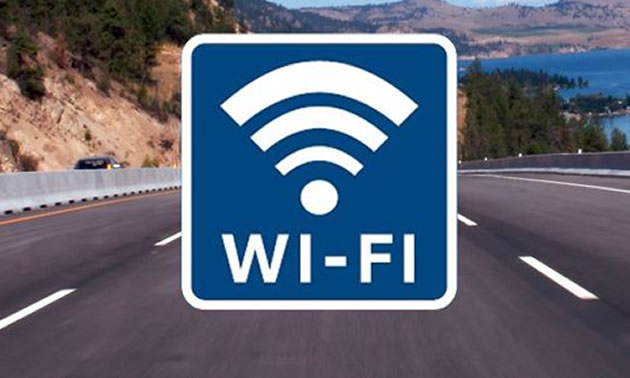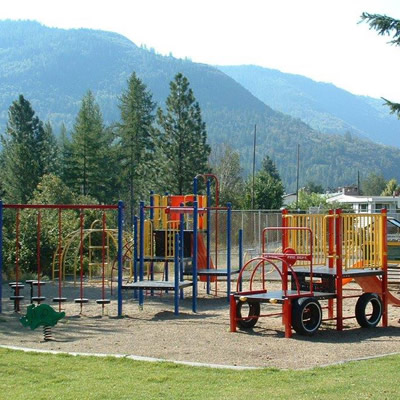Galena Bay rest stop one of first in province to get Wi-Fi
In total, 25 rest areas throughout the province will have Wi-Fi installed.

The expansion of public Wi-Fi at rest stops illustrates that technology and innovation supports a wide range of industries throughout B.C. — Photo: BC government
The Kootenay Rockies will see the installation of free Wi-Fi at one rest area in the region at Galena Bay on Highway 23 – 49 km north of Nakusp.
Free, public Wi-Fi will also soon be installed at select rest areas throughout the province, thanks to a partnership between the Province, TELUS and ICBC, announced Minister of Transportation and Infrastructure Todd Stone.
“Our rest areas are critical to the tourism industry, as well as the commercial trucking sector by allowing drivers to rest and access washroom facilities,” Stone said. “Earlier this month my ministry committed $9 million in funding over three years to improve the safety, comfort and convenience of rest areas. These improvements, along with the addition of Wi-Fi will be a key part of ensuring we deliver a competitive, world-class travel experience to visitors.”
In total, 25 rest areas throughout the province will have Wi-Fi installed. The following rest areas will have Wi-Fi installed by the spring of 2017, with the additional 20 sites being delivered in the coming years.
- Britton Creek—Highway 5: 67 kilometres south of Merritt
- Mt Terry Fox—Highway 16: 6km east of Tete Jaune
- Galena Bay—Highway 23: 49km north of Nakusp
- Glacier View—Highway 16: 7km north of Smithers
- Taylor River—Highway 4: 37km west of Port Alberni
“Expanding our free Wi-Fi network to rest stops along remote highways will complement our ever expanding 4G wireless network, helping travellers stay connected with loved ones, check the weather or traffic, and instantly share great road-trip photos in social media,” said Tim Draper, TELUS vice-president of sales. “We share the government’s vision of a connected British Columbia and look forward to completing this next step on that challenging but important undertaking.”
“We’re very pleased to contribute to Wi-Fi being installed at rest areas around B.C., which will allow drivers to stay connected and avoid using their phones on the road,” said Mark Blucher, ICBC’s president and CEO. “More than 800 crashes occur every day in B.C., many of these caused by distracted driving. We need help from all British Columbians to help keep roads safe. By driving safely and following the rules of the road, you can help lower our claims costs and directly lower the rates you pay.”
Travellers will be able to identify which rest areas have Wi-Fi by the Wi-Fi graphic on the rest-area sign. For an example of what the signs look like, click here: https://flic.kr/p/M5eykS or here: https://flic.kr/p/M5ey8Y
The expansion of public Wi-Fi at rest stops illustrates that technology and innovation supports a wide range of industries throughout B.C. Helping businesses such as commercial trucking companies grow is an important part of the #BCTECH Strategy and a key component of the BC Jobs Plan to strengthen British Columbia’s diverse innovation economy.
As part of B.C. on the Move, the Province’s 10-year transportation strategy, the ministry is committed to delivering up to 30 rest area improvement projects per year.
Quick Facts:
- Approximately 81% of B.C.’s 177 rest areas are wheelchair accessible
- 72% are open year-round
- 74% are suitable for large commercial traffic.





Comments